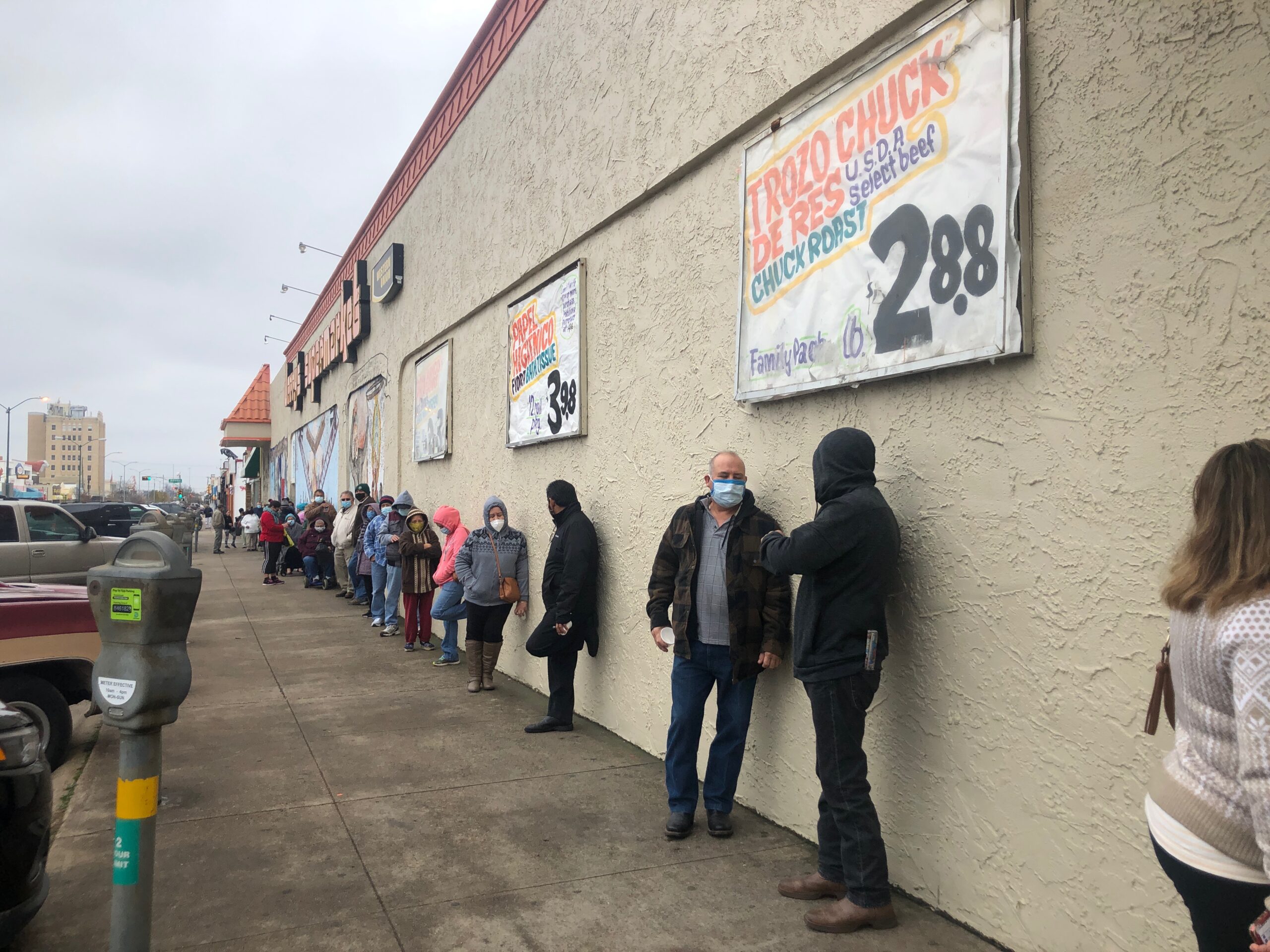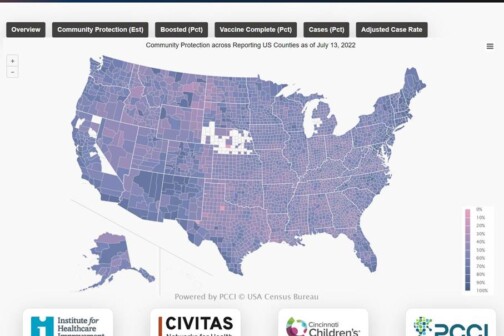When I listened to The Joe Rogan Experience episode featuring Dallas physician Dr. Peter McCullough, there was one data point he brought up that stuck with me. He spoke about Bangladesh, which at the time had almost no COVID-19 cases. McCullough and Rogan discussed oral drugs like Ivermectin, the anti-parasitic used worldwide to treat COVID-19, despite nearly all medical authorities saying it shouldn’t be used.
But it seemed Bangladesh was doing something right. While omicron was raging in the U.S. and leading to record case numbers, almost no cases were there. Considering the density, living conditions, and medical care in the southeast Asian nation, Bangladesh should have been ripe spreading ground for this very contagious variant. McCullough mentioned Peru, Mexico, and Japan as countries where Ivermectin was helping to “crush the curves,” despite what medical authorities were saying.
As it turns out, the lack of cases in Bangladesh had nothing to do with its use of Ivermectin. It hadn’t cracked the code and flouted medical best practice to stop the virus. It was just behind schedule. The omicron wave hadn’t yet hit Bangladesh when the podcast was recorded, but, as of this writing, cases are spiking just like they did here in the U.S. In almost every country where Ivermectin was commonly used and thought to have controlled COVID-19 (many in Latin America), they are now experiencing record highs in case numbers.
McCullough is a Dallas cardiologist at The Heart Place, a local cardiologist group. He has over 1,000 publications to his name, and has been the co-editor of Reviews in Cardiovascular Medicine and the chair of the National Kidney Foundation’s KIdney Early Evaluation Program. He is no stranger to the spotlight and has testified before the Texas Senate’s Health and Human Services Committee, sticking to his arguments doubting the medical establishment’s approach to the pandemic. He questions the vaccine’s efficacy for certain groups, the existence of reinfection, and argues that the push for vaccination is evidence of mass psychosis. His thoughts have found an audience on the internet, if not with health systems.
Last fall, Baylor Scott and White Health filed a temporary restraining order against him for claiming an affiliation with the health system after entering into a confidential separation agreement where he agreed to stop mentioning his prior leadership and appointments there. The Texas A&M College of Medicine, Texas Christian University, and the University of North Texas Health Science Center School of Medicine also removed McCullough from their faculties in recent months.
But despite his conflicts with the establishment, he was featured on the world’s most popular podcast in December, sharing his thoughts about the pandemic. The nearly three-hour episode has several things worth discussing.
One of McCullough’s top talking points is that the population is being “railroaded” into vaccination, rather than working on treating the disease. Rogan asks McCullough how so many physicians could go along with what he characterizes as poor treatment. “We think there are about 500 doctors who know what is going on in the United States,” McCullough says, of about 1 million nationwide. “The nurses are more awake than the doctors.”
“The doctors appear to be, like many of our leaders, are in what is called a mass formation psychosis,” McCullough says. This is when groupthink is so strong that it leads to tragedy, the physician says, citing mass suicides connected to cults. He adds that every prominent religious and international leader is under the same spell. Steps to mass psychosis include isolation, withdrawal of enjoyment, constant anxiety, and a single solution offered by an entity in authority. “Worldwide, everyone must take the vaccination,” he says.
Rogan had Dr. Robert Malone on his podcast to discuss mass formation psychosis in December. The scientist compared the current situation to that of Nazi Germany when educated people went along with what Hitler was doing to the country. The episode led to more than a thousand doctors to sign an open letter to Spotify demanding the episode be taken down because of how it spreads misinformation.
Mass psychosis is not officially recognized by medical authorities and does not appear in the American Psychological Association Dictionary of Psychology, nor does it appear in published research articles.
But for believers in mass psychosis, the uniform dismissal of McCullough’s theories is evidence of the psychosis itself. But digging a little deeper, the four steps that lead to this supposed mass psychosis don’t hold up. Take the idea that the vaccine has been the only solution offered by authorities. The medical industry has been working on treatments since the beginning of the pandemic, and the state of Texas has even set up its state-run infusion centers to treat those suffering symptoms of the virus.
Merck and Pfizer each have their own COVID-19 pill that treats those who have infections. McCullough argues that the lack of pre-hospitalization options for COVID-19 patients is part of a conspiracy to make everyone get vaccinated.
COVID-19 is a virus and not bacteria, which means that a vaccine is the primary way to fight the disease caused by infection. Viruses also cause the common cold and flu, and other than the flu shot, there isn’t much one can do to treat them unless they get severe, much like COVID-19.
Vaccines are the best option for preventing the spread of viruses because they are so difficult to treat.
“Viruses can create memory cells and can stay dormant and come back,” says Dr. Fahmi Farah, a cardiologist in Fort Worth. “Viruses are more complicated than other types of pathogens and not so easy to kill.
“Why was the focus on treatment, and why was it not becoming available? Scientists were working on it just as much as they were working on the vaccine, but the push for a vaccine is so important when it comes to a virus because prevention is key,” Farah says. “Once you’re infected with it, it is very difficult to control.”
Another of McCullough’s talking points, which he also detailed before the Texas Senate, is that healthy people under 50 do not need to get the vaccine. The issue has been fact-checked and discredited by numerous authorities and plenty of empirical evidence, but interestingly enough, Rogan hosted a guest earlier this month who spoke to the risks of the vaccine compared to the virus in young people.
In an incredible sequence, Rogan spoke with Australian media personality Josh Zepps about the risks of myocarditis for young people who have been vaccinated. Zepps noted that data show the risks of heart disease are greater from COVID-19 than from the vaccine. Doubtful, Rogan looks up the study in the middle of the episode and sees his folly. Young people are eight times more likely to get myocarditis from COVID-19 than the vaccine, the study found.
Farah has seen more young people impacted by the virus lately as well. “Commonly, we see it in people who are older, but we’re seeing it now in much younger folks: 20s, 30s, and 40s,” Farah says. “People who have recovered from COVID are having symptoms like chest pain, shortness of breath, and some of them are due to damage done to the heart as a result of COVID.”
McCullough goes on to doubt the efficacy of the vaccines, saying that those who have already had COVID should not get vaccinated and that there have been very few people who get it twice. The omicron surge has proved that to be wrong again. In Dallas, 95 percent of the deaths at Parkland Hospital have been unvaccinated individuals.
I reached out to Heart Place to be connected to Dr. McCullough but haven’t heard back. A board member offered the following statement about his views and work with the practice.
“His views are personal and not representative of HeartPlace or the organization. We are an independent practice of cardiology. We support our clinicians practicing cardiology. His comments in public have nothing to do with cardiology or his practice. Our physicians and staff have varying opinions about the pandemic, its prevention, and treatments. The organization only employs Dr. McCullough. We have no comment about his personal beliefs or what he believes is true,” the statement reads.
But those who believe McCullough is on to something won’t be so easily dissuaded. “A doctor who believes in the oath he took, a doctor of integrity! Another rarity these days. God bless this man!” one YouTube comment reads. For them, the physicians and health authorities calling for his removal from the public sphere are just more evidence of a conspiracy.
Get the D CEO Healthcare Newsletter
Author






